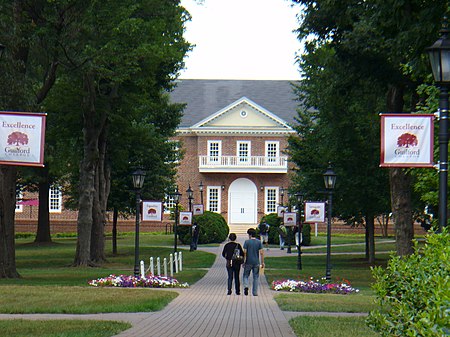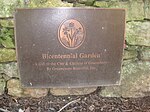Guilford College
1837 establishments in North CarolinaColonial Revival architecture in North CarolinaEducational institutions established in 1837Gothic Revival architecture in North CarolinaGuilford College ... and 12 more
Historic districts on the National Register of Historic Places in North CarolinaLiberal arts colleges in North CarolinaNRHP infobox with nocatNational Register of Historic Places in Guilford County, North CarolinaNeoclassical architecture in North CarolinaPrivate universities and colleges in North CarolinaQuaker universities and collegesQuakerism in North CarolinaUniversities and colleges accredited by the Southern Association of Colleges and SchoolsUniversities and colleges in Greensboro, North CarolinaUniversity and college buildings on the National Register of Historic Places in North CarolinaUse mdy dates from February 2012

Guilford College is a private liberal arts college in Greensboro, North Carolina. Guilford has both traditional students and students who attend its Center for Continuing Education (CCE). Founded in 1837 by members of the Religious Society of Friends (Quakers), Guilford's program offerings include such majors as Peace and Conflict Studies and Community and Justice Studies, both rooted in the college's history as a Quaker institution. Its campus has been considered a National Historic District by the United States Department of the Interior since 1990.
Excerpt from the Wikipedia article Guilford College (License: CC BY-SA 3.0, Authors, Images).Guilford College
George Fox Road, Greensboro
Geographical coordinates (GPS) Address Nearby Places Show on map
Geographical coordinates (GPS)
| Latitude | Longitude |
|---|---|
| N 36.095277777778 ° | E -79.888611111111 ° |
Address
George Fox Road
George Fox Road
27410 Greensboro
North Carolina, United States
Open on Google Maps





